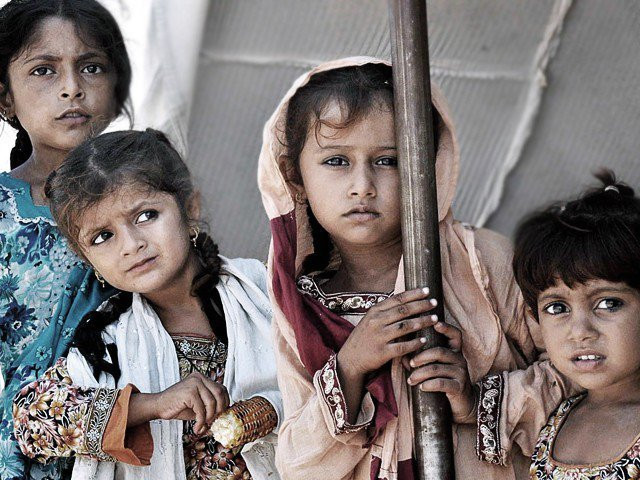Out-of-school children: Punjab govt devises enrolment policy
Instead of building new schools, classrooms will be increased, while second shift will be started

PHOTO: APP
The new policy will be implemented from the new academic year, which begins on March 1.
Currently, there are 52,000 educational institutions in the province, including primary, middle, high, higher secondary schools, Maktabs and religious seminaries. There are some 12 million students enrolled in these institutions and are taught by 300,000 teachers. They are overseen by 36 district educational authorities including their chief executive officers and 3,500 assistant education officers. Around 50 per cent of the students, between the ages of five and 16 years-of-age, are unable to read or write English. A similar percentage of students are not able to even communicate in Urdu.
To address this issue, the new plan will focus on strengthening primary education. In this regard, all courses in primary classes will be taught in Urdu while English will only be introduced as a subject.
Around 7,000 out-of-school children registered
Moreover, the plan also includes measures for pre-primary students, including formal and informal classes at the playgroup, pre-primary and Kindergarten levels where students will be educated with the help of toys and interactive teaching methodologies.
For this purpose, the provincial education authorities are considering hiring trained women teachers for the pre-primary section.
For students in grades one through three, Urdu will be used as a medium of instruction while students will focus on learning to understand, speak, read and write Urdu.
In rural areas, early learning centres will be built to cater to the needs of pupils between three and four years of age.
Enhancing capacity
With the provincial government facing the daunting task of accommodating the newly enrolled out-of-school children, the education authorities have decided that instead of building new classrooms for these students, capacity at existing schools will be enhanced by adding a cumulative 20,000 classrooms to the schools in the province in the next education session.
Moreover, to motivate parents in the rural areas to send their daughters to schools, the government is mulling a plan to provide a stipend between Rs800 to Rs1,000 per month to girls admitted up to middle school.
Further, the provincial government has decided that every school must have a minimum set of facilities including for sports, literature, scouts and girl guides.
In this regard, additional teachers will also be hired after rationalization and relocation of existing human resources.
Additionally, the provincial government is mulling plans to dissolve the examination boards for grade 5 and 6 by 2020 and replaced them with the Punjab Examination Commission Board by then.
Lack of funds
Separately, the provincial government has decided that instead of making new schools, overstaffed girls and boys schools will work in two shifts to resolve the capacity problem in a more cost-effective manner.
In this regard, the provincial government has decided on a format regarding the double shifts and appointment of teachers for these shifts.
Per the format, the government has decided to maintain a ratio of a teacher per 40 students, two teachers for 60 students, three teachers for 90 students, four teachers for 120 students, six teachers for 200 students, seven teachers for 240 students, eight teachers for 280 students, nine teachers for 320 students and 10 teachers for 350 students.
If there are more children or teachers, a second shift will be created.
Islamabad’s out-of-school kids to be enrolled in a year
Instead of hiring new teachers for the second shift, those existing, regular teachers will be appointed who agree to work in the second shift.
Apart from their regular salary, such teachers will be provided with a special honorarium.
Private school regulator
To monitor and regulate all private educational institutions in the province, the Punjab government has decided to create the first Punjab Private Educational Institute Regulatory Authority. A bill for this purpose has been drafted and has been sent to the provincial cabinet for approval.
This bill is expected to be tabled in the next session of the Punjab Assembly.
The proposed authority will monitor and regulate all aspects of private educational institutions including the creation of private educational institutions, admissions, fees, the salary of teachers, protection of employment, and monitoring of schools.
Published in The Express Tribune, January 28th, 2019.



1724319076-0/Untitled-design-(5)1724319076-0-208x130.webp)















COMMENTS
Comments are moderated and generally will be posted if they are on-topic and not abusive.
For more information, please see our Comments FAQ